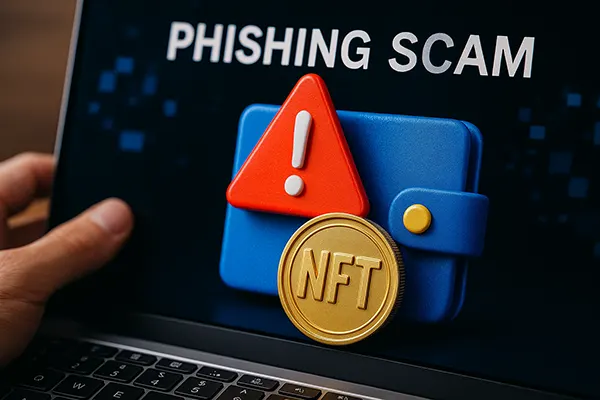
Case Study: How Investors Lost Funds in “Expert” Discord Communities
In early 2025, Discord remains a hotspot for cryptocurrency enthusiasts. From trading strategies to exclusive airdrop alerts, thousands join so-called “expert” communities seeking guidance and profit. But for many, this quest for financial gains ends in severe losses. This article explores real cases, behavioural patterns, and security oversights that led to investors losing their funds due to misplaced trust in Discord groups.
False Expertise and the Illusion of Authority
Many communities present themselves as curated by experienced traders or analysts. Their profiles often include photos, years of “experience,” and past success stories. However, verification is nearly impossible. This creates an illusion of authority that is rarely backed by real credentials.
Victims often joined these communities during bullish phases of the market. The leaders would share profitable trade screenshots, promising similar gains to followers. These claims attracted those with limited knowledge, who were unaware of the risks or lack of regulation on such forums.
Once trust was built, “admins” began promoting specific coins or tokens. Often these were low-liquidity assets they had invested in themselves — the classic pump-and-dump scheme disguised as professional insight.
Psychological Traps and Herd Mentality
One of the primary drivers behind the success of these scams is groupthink. When dozens or hundreds of users react positively to a suggestion, new members are less likely to question its validity. This atmosphere silences critical thinking and encourages blind compliance.
The admins often post time-sensitive messages urging users to act quickly to “not miss out,” creating FOMO (Fear of Missing Out). Once the coin is purchased by enough members, its price rises temporarily. Admins then sell their holdings at a peak, leaving others with worthless tokens.
Additionally, some groups use fake bot accounts to simulate discussion, hype, and buy signals, making the illusion of popularity even more convincing. The manipulation is sophisticated, not amateurish — often developed with marketing precision.
Security Oversights and Exploited Vulnerabilities
Beyond financial manipulation, several communities were used as traps to infect users with malware or phishing links. Fake giveaways, trading bots, or “airdrops” served as bait. Clicking these led to browser hijacks, wallet drains, or stolen credentials.
One notable case involved a fake NFT mint event hosted via Discord. Investors were instructed to connect their wallets to a third-party site, which contained a script that drained funds immediately after confirmation. The admin vanished hours later, along with thousands of dollars in crypto.
Discord’s lack of built-in wallet protection features makes it an ideal medium for such schemes. Despite some moderation tools, real-time content and decentralised structure make it difficult to enforce safety standards or trace bad actors post-factum.
Insufficient Education on Self-Custody
Another common problem is a widespread misunderstanding of how to protect digital assets. Many users assume that being part of a group offers protection or shared knowledge. This is rarely true in decentralised finance, where the individual bears full responsibility for wallet security.
Educational gaps make it easier for fraudsters to mislead victims. Simple concepts like verifying contract addresses, checking token liquidity, or using hardware wallets are often ignored. Instead, users rely on trust — the very thing scammers exploit.
Many victims later admit they felt uneasy but chose not to act, fearing ridicule or missing a genuine opportunity. This emotional trap reinforces dangerous behaviour patterns that scammers rely on.

Recommendations for Safer Navigation
While Discord can host genuine communities, investors should approach all advice with caution. Trust should be earned through verifiable experience and transparency — not vague bios or staged screenshots. No legitimate financial adviser will rush you into a trade with time-limited offers.
Users must also familiarise themselves with best practices in crypto security. This includes using hardware wallets, enabling two-factor authentication, avoiding third-party links, and verifying all smart contract interactions via reliable explorers like Etherscan.
Reporting and flagging suspicious communities is also essential. While Discord lacks robust enforcement, multiple user reports can sometimes prompt investigations or server takedowns. More importantly, speaking out educates others before they fall into the same traps.
Promoting Financial Literacy in Web3
The rise of decentralised assets demands equally decentralised education. Projects, influencers, and builders in the Web3 space must contribute to raising awareness about safe investing. Community-led efforts to expose scams, explain risks, and offer neutral guidance are gaining traction.
Transparency, independent verification, and critical thinking should be the norm — not exceptions. Instead of secret groups promising hidden gems, open discussions, and shared research are the sustainable path forward for crypto’s evolution.
By making responsible decisions and questioning authority, investors can protect themselves — and help build a more resilient and ethical crypto landscape in the process.




